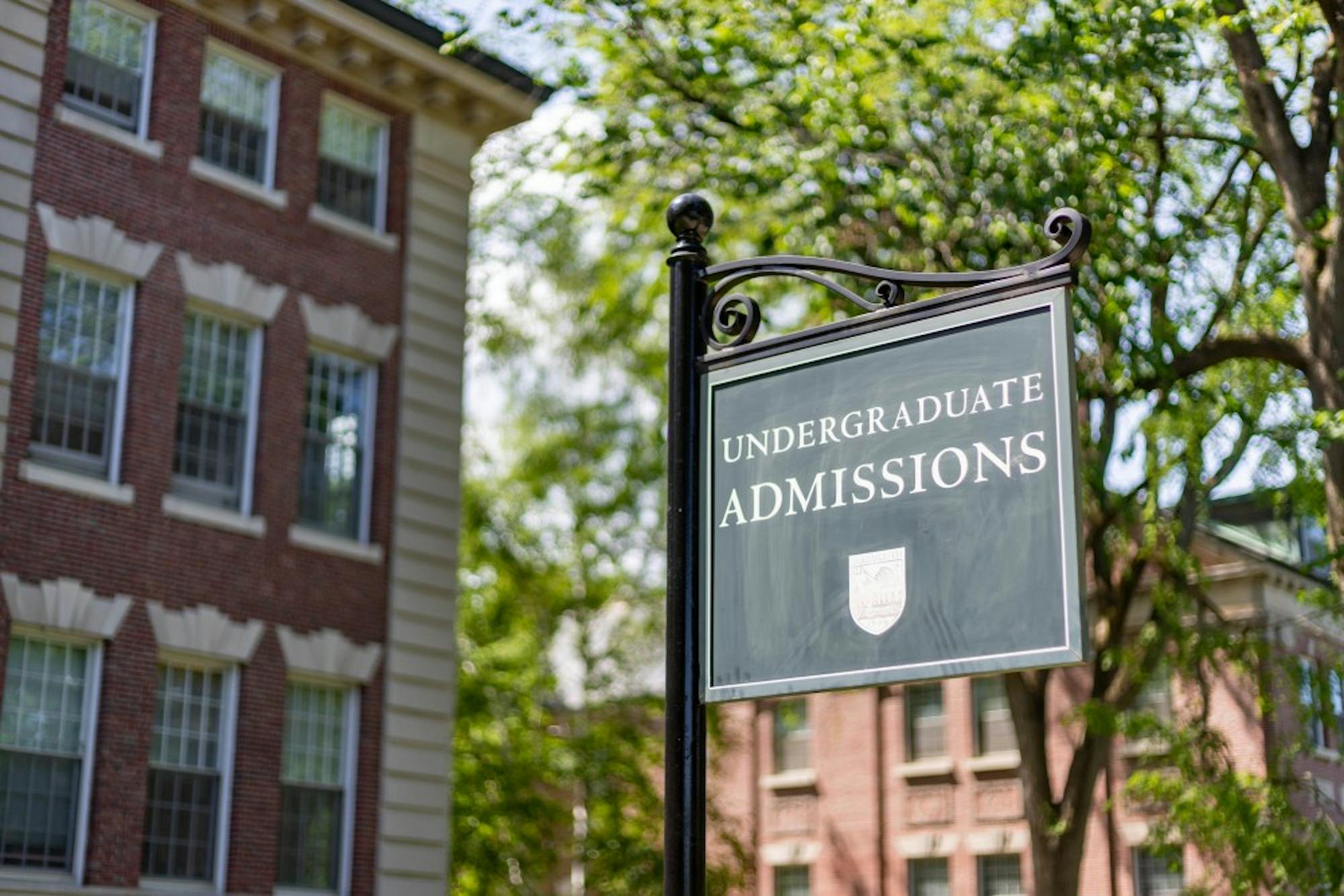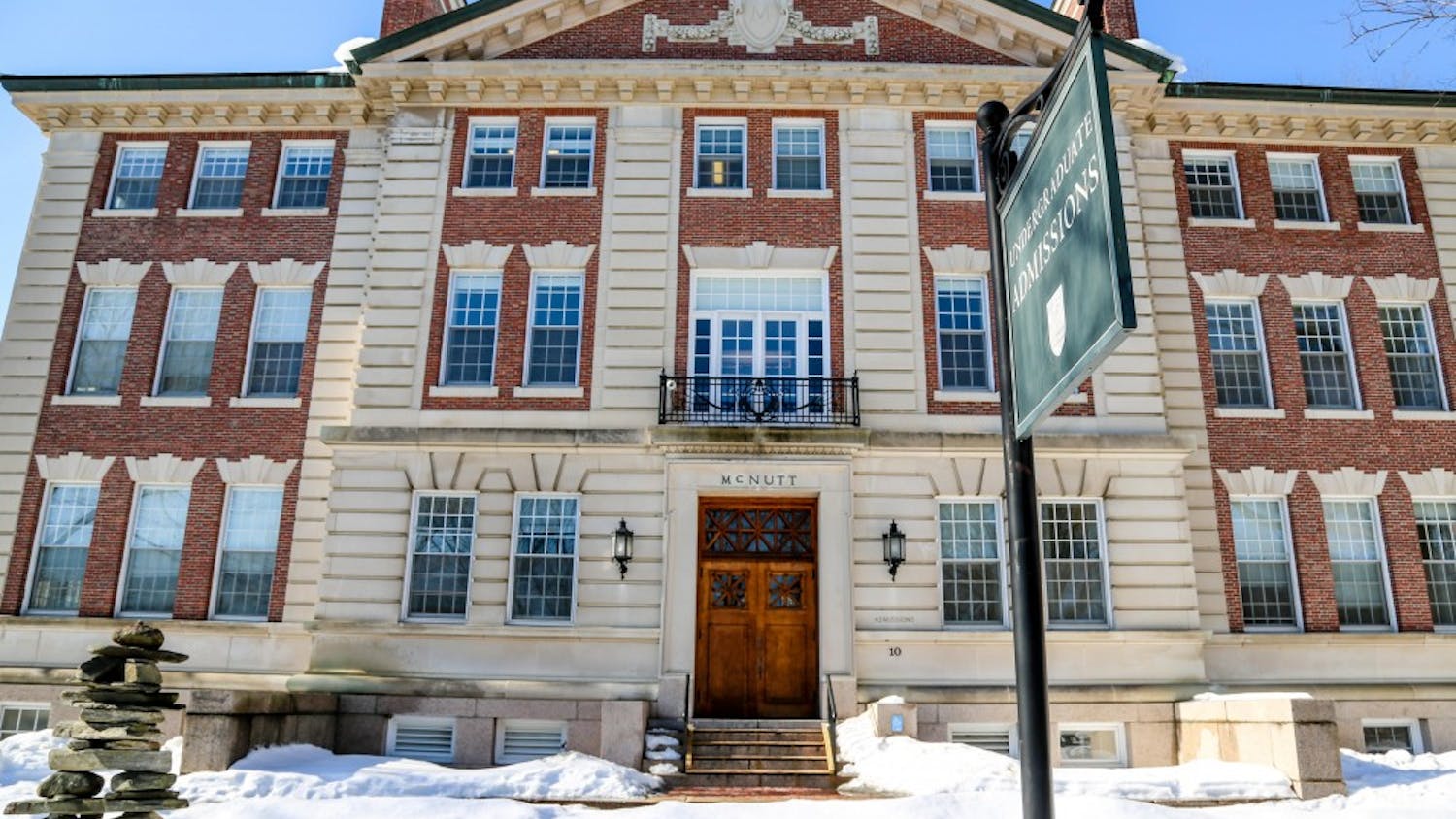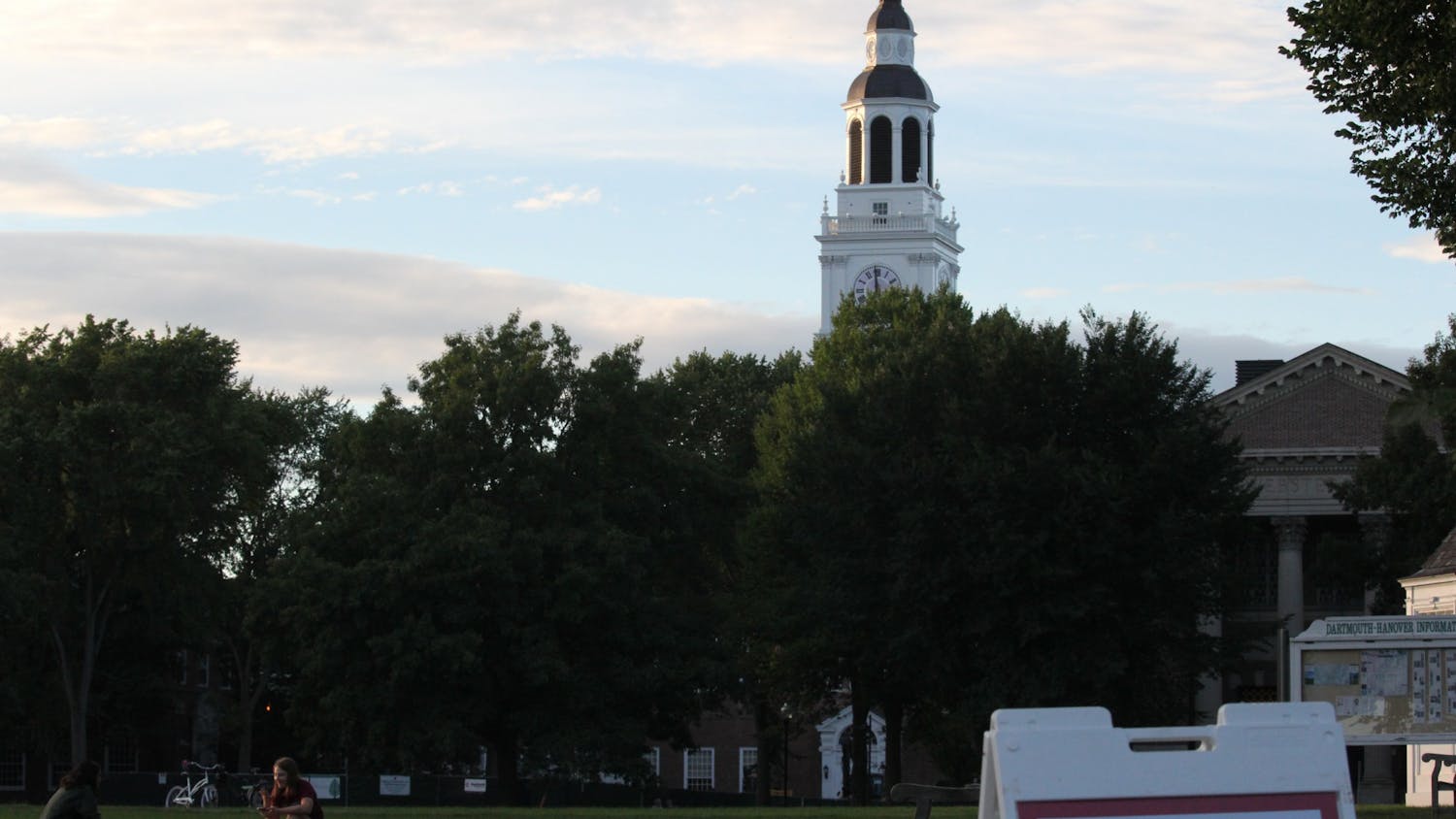Newly admitted members of Dartmouth’s Class of 2025, many of whom had to get to know, apply to and interview with the College entirely remotely, faced unique challenges in what proved to be an especially competitive early decision admissions cycle. Out of a record-breaking 2,664 applicants, the College admitted 566 students on Thursday.
Due to COVID-19, many early decision applicants were denied the opportunity to formally tour Dartmouth prior to submitting their applications. Though some prospective ’25s were able to visit campus before the pandemic, many learned about the College solely through virtual programming. Some turned to YouTube videos created by Dartmouth students, online forums and other informal online resources for a window into student life and campus culture.
Some ’25s visited campus before COVID-19 hit. Prescott Herzog ’25, who is from Claremont, New Hampshire, toured campus both his sophomore year and the summer before his senior year. Herzog said that although he knew he was going to apply to Dartmouth, being able to visit campus “cemented” the decision to apply early decision.
Not all students had the opportunity to visit campus prior to their acceptance, however, since in-person tours at the College have been suspended since March. Nour-Maria Bouzid ’25, a Questbridge finalist who matched with Dartmouth from Falls Church, Virginia, learned about Dartmouth through a local event at her high school. During Bouzid’s junior year, she attended an information session hosted by a Dartmouth admissions officer, which she found helpful as it allowed her to interact with someone who had spent a great deal of time at Dartmouth.
Olivia Sasse ’25, who is from Nevada but attends a boarding school in Canada, said that she participated in a virtual programming event with an admissions representative and other students from her school. While she enjoyed these smaller gatherings, she said that she found the larger ones — which hosted several universities and hundreds of attendees on Zoom — to be “overwhelming” since it was hard to remember specific qualities of each school, and her questions often went unanswered.
This shift to virtual programming may not be entirely temporary. Vice provost for enrollment and dean of admissions and financial aid Lee Coffin wrote in an email on Friday that the admissions office is “very likely” to adopt a “hybrid of on-campus and virtual recruitment” after the pandemic, as virtual recruitment has appeared to increase accessibility. This year, the admissions office was able to reach 64% more prospective students virtually than during last year’s in-person recruitment cycle, according to Coffin.
Despite being unable to visit campus during the college application process, Bouzid said she learned more about the College by watching YouTube videos created by Dartmouth video bloggers who posted videos about their personal experiences on campus.
“I really realized that that’s a place I would love to attend, and I feel like I would really fit in,” Bouzid said on the impact the videos had on her.
Herzog said that when talking with other ’25s, he found that many of them, like himself, had watched videos on channels that were not formally affiliated with the College, such as “Joelle,” run by Joelle Park ’19; “Hannah Likes Science,” run by Hannah Burd ’22 and “heyitsjoshco,” run by Josh Ocampo ’22. Herzog called the videos “instrumental” in providing a glimpse into the everyday lives of Dartmouth students. He added that he found the videos to be a more “genuine” representation of student life compared to the presentations given by the admissions office — which he felt placed a greater emphasis on statistics and the hard facts.
In addition to the challenge of finding information about Dartmouth, the pandemic added an extra layer of uncertainty to the admissions process, as Dartmouth decided to make standardized tests optional, raising anxiety for some applicants.
“I was worried that a million people would apply because suddenly they didn't have to have a score,” Sasse said.
Bouzid noted that above all other challenges related to the admissions process, the increased number of ’24s that had deferred enrollment for a year caused her the most “panic.”
Ultimately, Bouzid said she is relieved that the situation worked out in her favor. The 172 students who deferred entry have until March 1 to reconfirm their enrollment, according to Coffin.
“Given the unprecedented circumstances that produced that unusual degree of deferral, it seems unlikely that all of them will enroll — the first one just withdrew last week, in fact,” Coffin wrote.
The College expects to enroll a total of 1,150 students, meaning that should all deferrals confirm membership in the Class of 2025, around 64% of spots will already be filled.
New members of the Class of 2025 have yet to find out whether they will be matriculating in person come fall. However, Bouzid and Sasse noted that they had not considered Dartmouth’s reopening plan as a factor when choosing the school, as they hope that the pandemic will have resolved by the time they matriculate.
Coalter Palmer contributed reporting.





